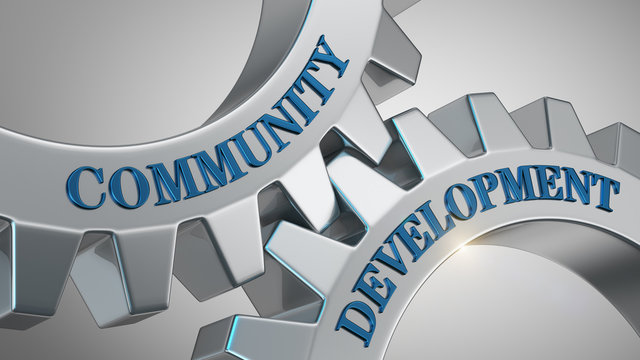Community Development: A Perspective

Photo Credit : md3d/Adobe Stock
Community development involves a series of endeavours and commitments geared towards enhancing the well-being and empowerment of society as a whole in a sustainable manner. Throughout this process, diverse approaches and initiatives are employed to bolster the capabilities of both individuals and groups within the community, emphasizing interactive and proactive involvement in the developmental process. It is believed that within the community, numerous options and opportunities can be cultivated to foster sustainable community development grounded in principles of fairness. In summary, community development endeavours to address social issues and enhance the living standards of the lower-middle class, employing stages of planning, coordination, and development to address societal concerns. This approach, known as community-based management, accentuates the management of community knowledge and awareness, with the community actively engaged in defining needs, setting goals, and making decisions according to their aspirations.
Furthermore, Suharto (2014) outlined four principles of community development:
- Upholding justice, human rights, empowerment, self-determination, collective action, and diversity.
- Aiming to transform discriminatory social structures or systems.
- Facilitating community participation to liberate from restrictive ideologies and structures.
- Implementing community development through structured programs tailored to community needs and existing social capital.
Additionally, Suharto (2014) detailed six program plans for managing community development:
- Identifying fundamental community issues to understand their root causes through data collection, observation, and community interaction.
- Analysing problems to identify obstacles and challenges for sustainable social change.
- Setting goals and objectives through comprehensive studies and needs assessments.
- Planning activities, including facility and infrastructure utilization, necessary for project implementation.
- Executing activities with actions, resource mobilization, facility use, and adherence to schedules, alongside monitoring for adherence.
- Evaluating program success to understand achievements and areas for improvement, aiding decision-makers in designing more effective future activities.
In conclusion, community development strives to enhance community welfare and empowerment sustainably, with active community participation. Through tailored programs, it addresses social challenges and uplifts living standards, emphasizing the importance of community involvement in decision-making and goal-setting processes.
-Diana Anggraeni
References
Aziz, Moh Ali. (2009). Dakwah Pemberdayaan Masyarakat. Yogyakarta: Pustaka Pesantren
Dumasari. (2014). Pengembangan Masyarakat Partisipatif. Yogyakarta: Pustaka Pelajar
Suharto, Edi. (2014). Membangun Masyarakat Memberdayakan Rakyat. Bandung: PT. Refika Aditama
Zubaedi. (2013). Pengembangan Masyarakat Wacana dan Praktik. Jakarta: Kencana Prenada Media Grup

